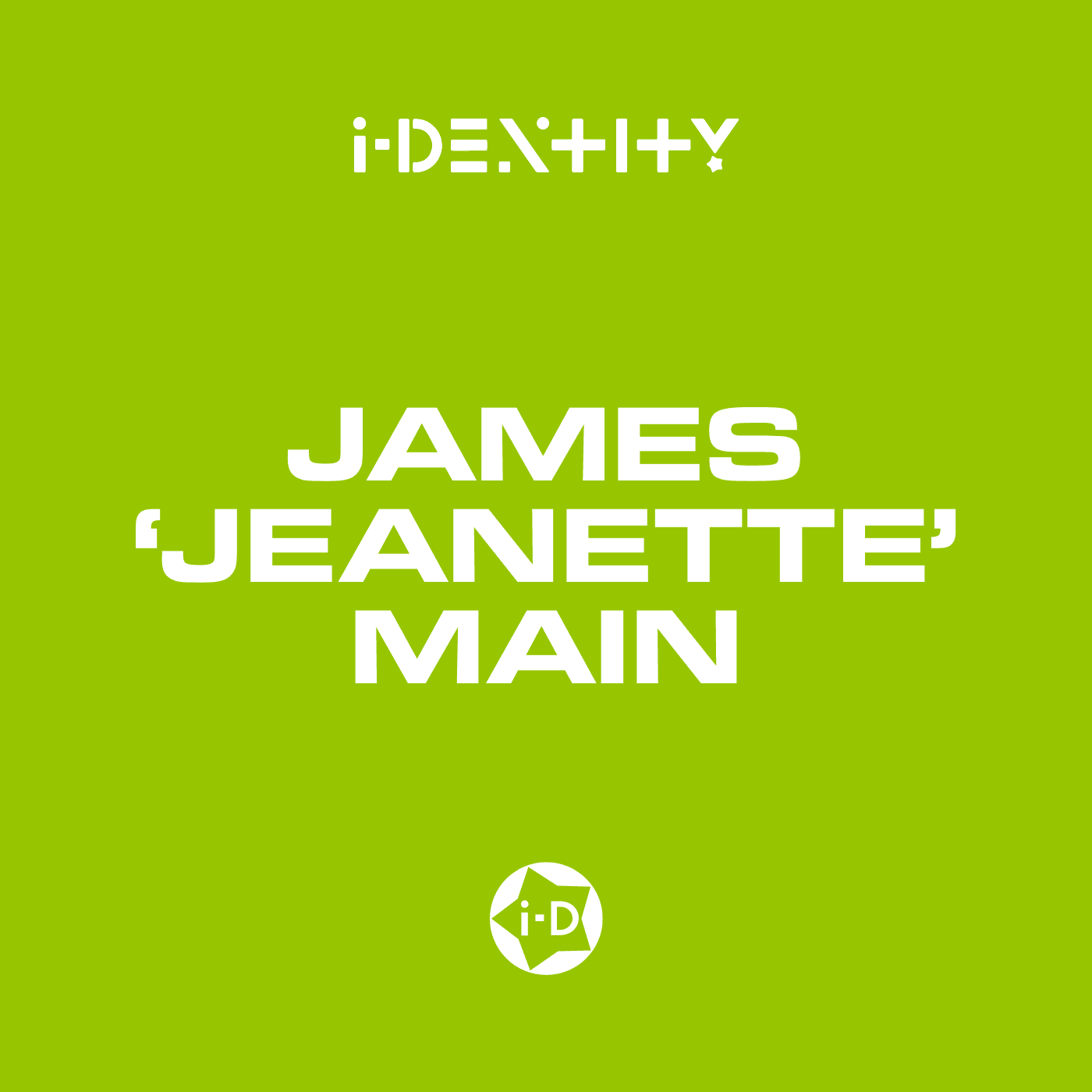Welcome back to i-Dentity, where we celebrate global subcultures, past and present. This week, we caught up with James ‘Jeanette’ Main, East London nightlife legend, known for his outrageous outfits and presiding over the gone-but-never-forgotten club night, Boombox.
Having grown up in the self-described grey suburbs of Aberdeen, James has previously said that he wore his first pair of heels at the age of two – the sound of them clacking along the pavement sparking a lifelong quest for self-expression through style, music and clubbing. “I wanted to be this rich bitch in this little grey village, which actually was a subversive act,” he tells us on the podcast.
As a teenager, he began exploring Aberdeen’s queer scene, eventually finding his way to London in the late 90s, where he became a hairdresser — coiffing the likes of Grace Jones — and also cut a sharp figure on the nightlife scene in their spectacular outfits. “London particularly has this kind of humour about it,” he remembers of that time. “It doesn’t take itself too seriously, and I think that’s really beautiful about London — it’s very special.”
In the mid-2000s, he became the so-called ‘door girl’ for Richard Mortimer’s Sunday evening club night Boombox, known by the moniker of ‘Jeanette’. “On a Sunday night, when you’ve got to go to work on Monday, you don’t care because you want to make an outfit out of nothing and go out and get completely wasted and then crawl home,” he asserts. “Who cares about tomorrow?” One of a handful of nights in the East End, it sparked a renaissance in queer London nightlife and marked a shift in the city’s creative centre, playing host to fashion designers, musicians, artists, art students — and indeed the occasional icon — who all had to pass Jeanette to get to the dancefloor.
Creativity and experimentation were encouraged, with guests going big on self-designed outfits that resonated with the club night's fun, glamorous and often naughty mood, likened to former club nights Blitz and Taboo. Jeanette’s looks each week were infamously iconic, borrowed from the likes of his friends Christopher Kane, Gareth Pugh and Giles Deacon – the city’s emerging designers at the time. It all started when Pugh lent Jeanette a “poodle” outfit from his breakout graduate collection.
“It did feel glamorous but it was really trashy,” he recalls. “Warhol superstars: it had that element about it, this early 2000s time.” On their adopting his name: “Jeanette wasn’t an alter ego or anything – it was a nickname. It definitely wasn’t a conscious thing to put on a new personality. But when you put on one of Gareth’s creations, you definitely put on armour.”
Boombox closed its doors on New Year's Eve in 2007, just before the collapse of Lehman Brothers and the subsequent recession that decimated life for artists and creatives in central London. A time before social media, photographs by the club night’s photographer Alistair Allan have immortalised it for future generations, as the queer nightlife scene in the East End has slowly dissipated since. As James mentions, “I can’t remember fuck all, and that shows it was a brilliant time”.
In 2009, just off Redchurch Street, James opened Jeanette’s, a tiny former garage filled with pieces and one-off exclusives from the likes of Christopher Kane, Louise Gray, Richard Nicoll, Noki and Judy Blame. Time Out described it as ‘the East End’s most avant-garde boutique’. Music soon came calling and, in 2014, James formed Wild Daughter with Stuart McKenzie, a self-proclaimed ‘garage kink’ band borrowing the codes of the 70s rock’n’roll, punk and S&M. In 2020, he moved to Berlin, where he has been making music since via his projects Death Awareness Café, Itchy Spots and i.u.r.a.n.u.s.
As he puts it: “Subculture is doing what you can’t help not do, doing what is burning inside you, and finding others who have the same burning desire as you.”
Subscribe to the i-Dentity podcast, i-D’s home of subculture on Spotify, Apple Podcasts.

